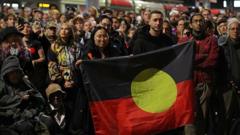The article examines Julius Malema's political standing and its implications for international relations, particularly at a White House meeting between the US and South African leaders.
**Julius Malema’s Impact on US-South Africa Relations Explored**

**Julius Malema’s Impact on US-South Africa Relations Explored**
A recent meeting between Presidents Trump and Ramaphosa was influenced by the controversial South African politician.
Julius Malema, the provocative leader of South Africa's Economic Freedom Fighters (EFF) party, continues to dominate discussions regarding South Africa's contentious race relations and its foreign diplomacy. Although he was not present during the recent Oval Office meeting on May 22, 2025, between U.S. President Donald Trump and South African President Cyril Ramaphosa, Malema's influence was unmistakably felt. The White House showcased a video compilation of his incendiary apartheid-era chants during their discussions, which framed a narrative that President Trump embraced concerning allegations of racism and violence targeting white South Africans.
Malema, 44, has positioned himself as a champion for radical land reform, advocating the redistribution of land owned by the white minority to the majority Black South Africans. His party has drawn criticism and support in equal measure, managing to secure less than 10% of the votes in the 2024 elections but maintaining a significant presence in political discourse. Following the Oval Office meeting, he addressed the situation on social media platform X, dismissing the discussions as gossip among older leaders, and casting doubt on the existence of the alleged "white genocide" often cited in conservative circles.
Notably, Malema gained significant media attention in 2023 for his inflammatory remarks at rallies, particularly his chant "Kill the Boer," targeting the Afrikaner farmers, descendants of the colonial settlers who previously ruled during apartheid. This rhetoric has polarized opinions, further complicating South Africa's already intricate racial dynamics.
As leaders across the globe navigate the political landscape shaped by figures like Malema, his role as a catalyst for change—or challenge—remains pivotal in discussions surrounding international relations, especially between the United States and South Africa. The juxtaposition of Trump's claims alongside Malema's radical rhetoric continues to shape perceptions and policies well beyond South African borders.




















